John Regefalk is a Swedish chef now working in Rome. We met online, though my memory fails as to the specific site. Regardless, as full time chefs, we also share a passion for baking. He was kind enough to give this interview.
How did you end up baking in Rome?
Already having worked as a chef for quite a while, I left Sweden years ago with a firm desire to explore a bit of the Italian cuisine, traveling, eating and cooking. I landed in Palermo, Sicily – the extreme south of Italy. Just imagine that culture shock coming straight from Sweden!
I started off by traveling around Italy for a few months, eating traditional food, from home kitchens and simple restaurants, trying to assimilate this new palette of flavors. Then I stumbled across the beautiful city of Rome. I decided to stay in town and look for a job as a cook. With a bit of luck and a well-prepared resume, I found a job right away in a restaurant serving updated Roman classics. I thought to myself “I’ll stay for while, maybe 6 months, gather some experience for my future, then I’ll head back home to Sweden.”
Obviously that didn’t happen. Seven years later I’m still in Rome, having changed a few workplaces and done a couple of stints abroad, but always returning to Caput Mundi.
My professional approach to baking emerged only recently when I started working at Metamorfosi Restaurant in Rome. I’ve always loved bread – eating it, the smell of it, and its versatility. I baked a fair bit at home when I was younger, but without any great knowledge about the ingredients, the techniques or the science behind it all. When I was hired at Metamorfosi I saw my chance to combine necessity for a higher quality bread service with my ambition to study and become better at baking.
Now as soon as I have some spare time, be it at the restaurant or not, I mix, bake, taste, try new formulas and new flours, write recipes, study and share my bread with friends. At the same time I’m of course responsible for the day-to-day operations of the restaurant kitchen, trying out new dishes and the relationship with our suppliers.
Did you always bake or did you chef?
I’ve always worked as a chef, actually. Baking is just a lucky sidetrack that I’ve found during last few years. Let’s call it a passionate love story – something that gives me a lot of satisfaction. During these last years I have dedicated my time to studying the basic principles of baking and getting as much hands-on experience as my position will allow me.
Where did you study cooking and baking?
I entered the restaurant world as a dishwasher in the small village restaurant next to my family home in Sweden. What started off as a part-time holiday job while I was still in school, turned out to be so much more. The dedication, passion and love for food that I found in that restaurant ultimately lured me into the kitchen, and I started working my way up the ranks. I worked in many different restaurants in Sweden, and some abroad, leaving a trail of mentors along the way.
How’s the restaurant scene in Rome?
In Rome tradition reigns supreme. You have a truly vast amount of restaurants, pizzerias, trattorias and osterias offering immutable traditional fare of varying quality. More than anyone else, Romans seem to lack a huge need for novelties or variation of their restaurant diet. And often they seem to go back to the same traditional restaurants over and over again.
A few new bistro-style eateries have popped up during the last years offering an interesting break from the classics. When it comes to modern and innovative cooking, the options become more limited. There are number of Michelin-starred restaurants in town, but only a few of them reach considerable gastronomical levels.
In my opinion the Roman restaurant scene is way different from what you would expect from a European capital, with a huge emphasis on traditional cuisine, and a lack of interesting, modern options. Another very general problem is consistency. A lot of restaurants do a few dishes, the classics maybe, really well. And on the same menu you might find some altogether unappetizing dishes. Or you might find the Carbonara perfect on your first visit. Then on the second visit, the dish has been ruined by the chef’s neglectful hand.
What’s the base from which you pick your palette of ideas?
I think the Swedish inspiration in my dishes comes more from a sort of subconscious contamination, whereas the Italian influence, or worldwide for that matter, is more something of a conscious choice. If I look for the more primitive, rustic flavors of Swedish cuisine, I often manage well to combine them with the humble simplicity that is indeed the base of the Italian cuisine.
Are you a fan of just sourdough or do you use yeast too?
Both. I think every bread has its own requirements for the optimal end result. I don’t judge bakers by the leavening method they use, but on how close they come to the end result they had in mind. For some applications, commercial yeast is better than sourdough at getting me to the exact result I had envisioned. But at the end of the day, nothing beats tearing open a crusty loaf that just came out of the oven, hearing that crunch and smelling that lactic tang and lingering citrus fragrance of the sourdough.
What food do you eat usually?
Apart from bread? Very simple, uncomplicated stuff – cheeses, salumi, raw fish, lots of fruit and veggies.
Do you like fine dining or street food?
Street food gives me so much more pleasure. It’s something so fundamental. I would call it the mother of all cuisines. Street food constitutes the “heart” of a cuisine, so closely tied to the people and their culture. Street food could actually give you a good picture of their way of living and being. Street food could be a way of studying the dynamics of an entire culture, as opposed to fine dining where you would concentrate on the mind and palate of a single person, the chef. I’m much more often happily surprised by the flavor combinations and intensity of flavor found in street food compared to fine dining.
Where’s your inspiration coming from?
Visual “feeding” triggers my creativity. Flipping through cookbooks. Just seeing a photo of a dish can give spark inspiration, even though the outcome might have nothing to do with the food on the photo. Just a combination of colors appearing in front of me could inspire and ultimately trigger the creative process.
And subconsciously a lot of my inspiration comes from many years of experience traveling, cooking and eating. It could be memories from travels, of flavors, fragrances or simply curiosity about a new ingredient brought back from the last vacation.
What does Rome give you as far as food or baking inspiration?
When I came to Italy a whole new world opened up to me in terms of ingredients, flavors, philosophy around food, simplicity and seasonality. Rome could seem like a big city, but it still works as a small town as far as buying ingredients – with small farmers delivering their produce to the markets around town, making seasonality (and uneven supply) a trademark of the food scene.
When it comes to bread, I admire the very strong bread tradition that exists here in Italy, with heirloom grains and with a number of breads having been assigned a European protected geographical status. I do enjoy Italian bread with my meals, however I prefer a more Central or Northern European approach to bread making.
Your book is about bread only?
Tasting Rome? It’s not my book, actually. It’s being written and edited by Katie Parla. It will come out in 2016. And it’s not just about bread. But I do contribute to the bread chapter. You’ll be able to find my recipes for some different styles of bread and pizzas if you buy it.
If you were to open a business, what would you do?
The first thing that springs to mind would be my own restaurant. But a bakery is definitely in there on one of the top spots too.
How has the Euro-crisis affected food?
In Italy, only partially. It has shifted consumers and restaurant-goers from a varied consumption to the medium-low price range. The Italian food export is, as always, quite substantial, and in some sectors even growing at a fast pace.
What’s the latest trend in food or baking in Italy?
Street food is a definite trend in Italy now. A rediscovery of their own street food heritage mixed with a good pinch of overseas influence. In baking, the set-in-stone generational recipes remain the same, but some younger bakers do experiment with forgotten heirloom grains and unconventional ingredients.
What do you do when not in a kitchen?
On days off I hang out with friends, enjoy a typical long Sunday lunch in one of my preferred restaurants, have an aperitivo in a downtown bar. I might work on personal projects and read cookbooks and if the weather is nice, which it usually is in Rome, I might have a motorcycle ride to the seaside.
I rarely cook on my days off. As soon as I have a longer period when I don’t work – I travel. Doesn’t really matter where, as long as I get to be on the move.

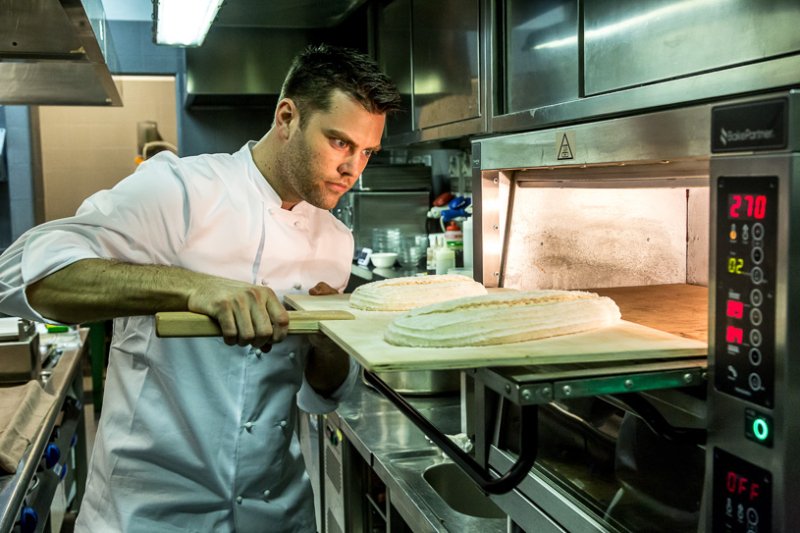
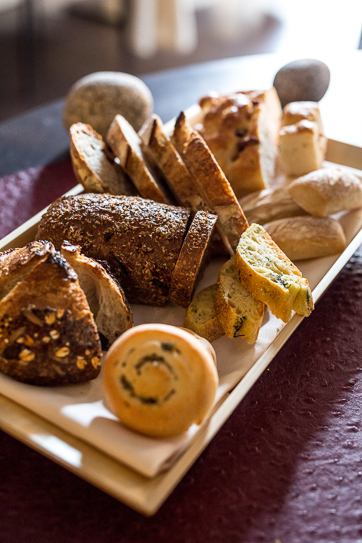
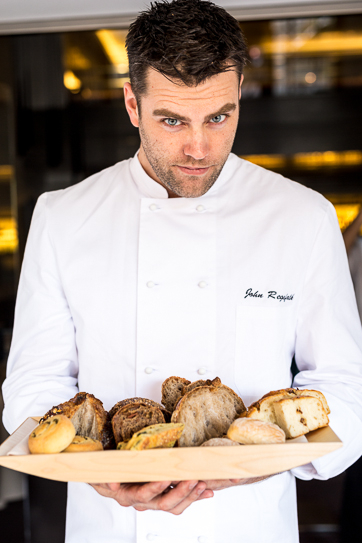
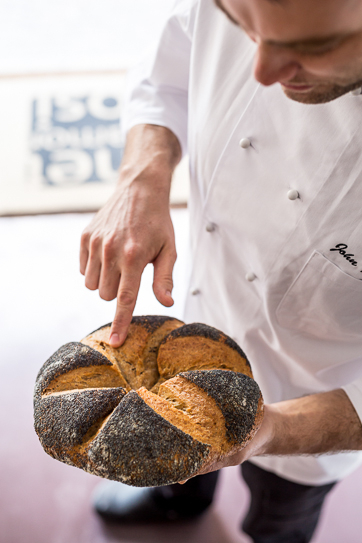
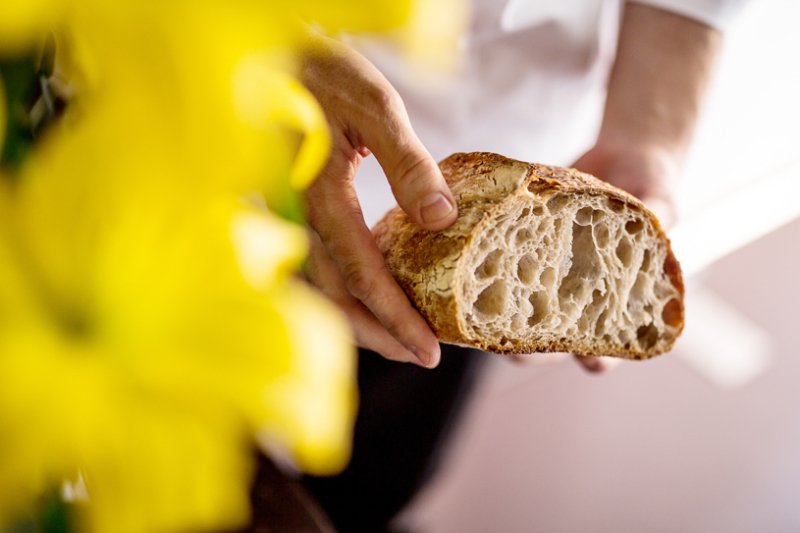
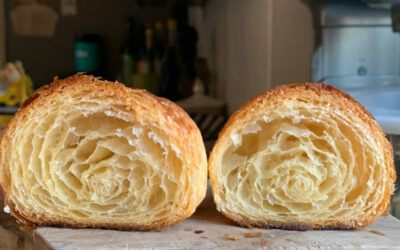



0 Comments